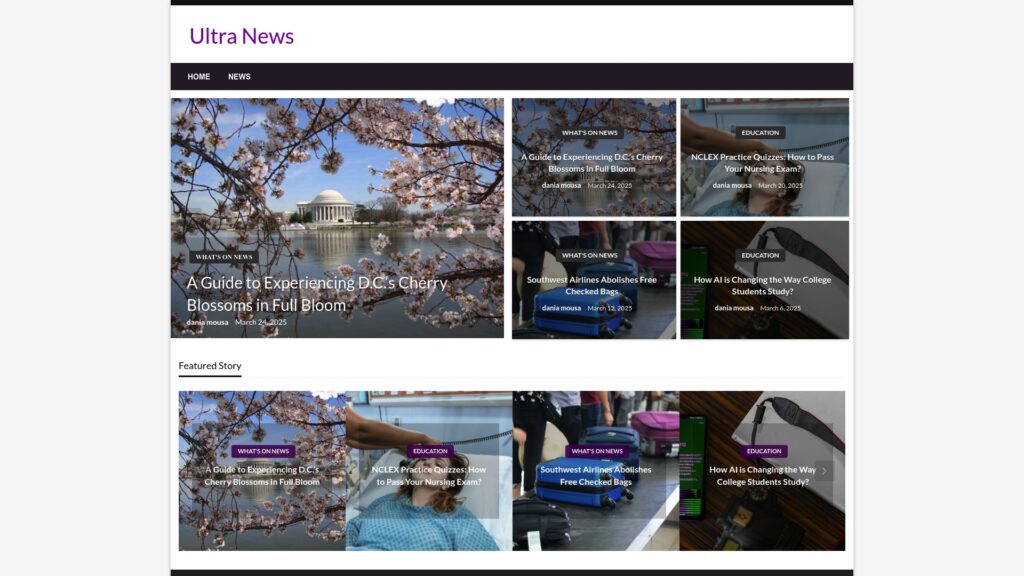
News alerts light up our phones all day and headlines seem more dramatic than ever. But check this out. A staggering 99.6% of therapists say that news consumption can actually hurt your mental health. Forget about simply staying informed. The real story is how your news habits might be quietly shaping your mood, sleep, and even your view of the world.
Table of Contents
- How News Consumption Affects Mental Health
- Identifying Signs Of News-Related Stress
- Healthy News Habits For Mental Wellbeing
- Expert Tips To Balance News And Emotional Health
Quick Summary
| Takeaway | Explanation |
|---|---|
| Limit daily news intake | Restrict your news consumption to 15-30 minutes to reduce stress levels. |
| Recognize signs of news-related stress | Be aware of emotional numbness, irritability, and physical symptoms as indicators of mental strain. |
| Establish news consumption boundaries | Set specific times for news consumption to avoid information overload and maintain mental health. |
| Cultivate a balanced information diet | Seek diverse and reputable news sources to ensure a broader perspective and lessen anxiety. |
| Practice psychological protection techniques | Use mindfulness, social connections, and physical exercise to bolster your mental resilience against stress. |
How News Consumption Affects Mental Health
The relationship between news consumption and mental health is complex and increasingly concerning in our hyperconnected digital world. Modern individuals are constantly bombarded with information, creating unprecedented challenges for psychological well-being.
The Stress Response Triggered by News
News consumption can trigger significant physiological and psychological stress responses. Research from GrowTherapy revealed a startling statistic: 99.6% of therapists confirm that watching or reading news can negatively impact mental health. When individuals are exposed to negative news, their body enters a ‘fight or flight’ mode, releasing stress hormones like cortisol. This biological response can manifest through physical symptoms such as rapid heart rate, shallow breathing, and digestive disruption.
Scientific evidence suggests that even brief news exposure can have profound effects. Remarkably, just 14 minutes of news consumption has been linked to heightened depression and anxiety symptoms. The constant stream of potentially distressing information creates a chronic stress environment that can progressively erode mental resilience.
Problematic News Consumption Patterns
A study published in Health Communication introduced the groundbreaking concept of ‘problematic news consumption.’ This phenomenon describes an unhealthy preoccupation with news that significantly interferes with daily functioning. The research identified that 16.5% of surveyed individuals exhibited signs of severely problematic news consumption, experiencing substantial negative impacts on their mental and physical well-being.
Individuals with high levels of problematic news consumption reported considerable challenges, including:
- Workplace Disruption: Difficulties concentrating on professional tasks
- Academic Interference: Reduced ability to focus on educational commitments
- Family Dynamic Stress: Increased tension in personal relationships
- Sleep Disturbances: Persistent issues with sleep quality and duration
Psychological Mechanisms of News Impact
Understanding the psychological mechanisms behind news consumption’s mental health effects is crucial. Constant exposure to negative information activates the brain’s threat detection systems, creating a persistent state of alertness and anxiety. This continuous psychological stimulation can lead to emotional exhaustion, decreased resilience, and a heightened sense of global uncertainty.
The cumulative effect of repeated news exposure can gradually reshape an individual’s perception of the world, potentially increasing feelings of helplessness, fear, and disconnection. While staying informed is important, developing healthy news consumption strategies becomes essential for maintaining psychological balance and emotional well-being.
To mitigate these risks, mental health professionals recommend practicing mindful news consumption. This involves setting clear boundaries, limiting daily news intake, selecting reputable sources, and maintaining a balanced perspective on global events. By understanding the intricate relationship between news and mental health, individuals can make informed choices that protect their psychological resilience.
Identifying Signs of News-Related Stress
Recognizing news-related stress is crucial for maintaining mental health in an information-saturated world. Unlike typical stress, news-induced psychological strain can be subtle yet profoundly impactful, affecting individuals across various aspects of their lives.
Psychological and Emotional Indicators
Research from Science Daily highlights that obsessive news consumption significantly correlates with psychological distress. Emotional signs of news-related stress often manifest through complex psychological responses that extend beyond typical anxiety symptoms.
Individuals experiencing news-related stress might notice:
- Persistent Emotional Overwhelm: Feeling constantly emotionally drained after consuming news
- Emotional Numbness: Developing a detached, desensitized response to traumatic global events
- Heightened Irritability: Experiencing increased anger or frustration triggered by news content
- Anticipatory Anxiety: Developing chronic worry about potential future negative events
Physical Manifestations of News Stress
A comprehensive study published in Health Communication revealed that 16.5% of surveyed individuals exhibited severe news consumption-related symptoms. These physical manifestations represent the body’s physiological response to chronic information-induced stress.
Physical signs include:
- Disrupted sleep patterns
- Increased muscle tension
- Digestive system irregularities
- Unexplained headaches
- Rapid heart rate
- Shallow, accelerated breathing
Behavioral Warning Signs
Behavioral changes often provide the most tangible evidence of news-related stress. These indicators suggest an unhealthy relationship with news consumption that requires intervention. Warning signs include compulsively checking news sources, experiencing difficulty concentrating on daily tasks, and feeling an uncontrollable urge to stay constantly informed.
Professionals recommend recognizing these behavioral patterns as potential indicators of news-related psychological strain. Individuals might notice they:
- Spend excessive time scrolling through news websites
- Struggle to engage in conversations unrelated to current events
- Experience decreased productivity at work or school
- Withdraw from social interactions
- Feel a constant sense of impending doom
Understanding these signs enables individuals to develop healthier news consumption habits. Recognizing the symptoms early allows for proactive mental health management, helping people maintain psychological balance in an increasingly complex information landscape.
To help readers easily identify and understand the different signs of news-related stress, the table below summarizes the psychological/emotional, physical, and behavioral indicators discussed in this section.
| Type of Indicator | Examples |
|---|---|
| Psychological/Emotional | Persistent emotional overwhelm, emotional numbness, heightened irritability, anticipatory anxiety |
| Physical | Disrupted sleep patterns, increased muscle tension, digestive irregularities, unexplained headaches, rapid heart rate, shallow breathing |
| Behavioral | Excessive news checking, difficulty concentrating on daily tasks, urge to stay constantly informed, decreased productivity, social withdrawal, sense of impending doom |
Healthy News Habits for Mental Wellbeing
Developing healthy news consumption strategies is essential for protecting mental health in an age of constant information bombardment. Mindful engagement with news media can help individuals stay informed without compromising their psychological well-being.
Setting Boundaries and Limiting Exposure
Harvard T.H. Chan School of Public Health recommends establishing clear boundaries around news consumption. This approach involves creating structured, intentional habits that prevent information overload and reduce potential mental health risks.
Effective boundary-setting strategies include:
- Scheduled News Time: Designate specific times for news consumption
- Time Limits: Restrict daily news intake to 15-30 minutes
- Avoid Bedtime News: Stop consuming news at least one hour before sleeping
- Digital Detox: Implement regular breaks from news and social media platforms
Curating a Balanced Information Diet
Mental health experts emphasize the importance of creating a balanced and diverse news consumption approach. This means actively seeking out sources that provide comprehensive, nuanced reporting rather than sensationalized or exclusively negative content.
Strategies for developing a balanced information diet include:
- Selecting multiple reputable news sources
- Seeking solution-oriented reporting
- Balancing hard news with positive, constructive stories
- Critically evaluating news sources for bias and accuracy
Psychological Protection Techniques
Beyond managing news consumption, individuals can employ psychological protection techniques to maintain mental resilience. These strategies help create emotional distance and prevent news-related stress from overwhelming personal well-being.
Protective psychological techniques include:
- Practicing mindfulness meditation
- Engaging in regular physical exercise
- Maintaining social connections
- Developing personal reflection and processing mechanisms
- Seeking professional support when news-related stress becomes overwhelming
By implementing these healthy news habits, individuals can stay informed while protecting their mental health. The key is developing a mindful, intentional approach to news consumption that prioritizes psychological well-being. Remember that staying informed does not require constant exposure to potentially distressing information. Balance, self-awareness, and proactive mental health management are crucial in navigating the complex modern media landscape.
For those seeking to develop healthier news habits, the table below organizes recommended strategies into clear approaches and examples, as outlined by experts in the article.
| Approach | Example Strategies |
|---|---|
| Setting Boundaries | Scheduled news time, daily time limits, avoid bedtime news, digital detox |
| Balanced Information Diet | Multiple reputable sources, solution-oriented reporting, positive stories, evaluate source bias |
| Psychological Protection | Mindfulness meditation, regular exercise, maintain social connections, seek professional support |

Expert Tips to Balance News and Emotional Health
Navigating the complex landscape of news consumption requires strategic approaches recommended by mental health professionals. Understanding how to maintain emotional equilibrium while staying informed is crucial for psychological well-being.
Psychological Strategies for Emotional Resilience
Harvard T.H. Chan School of Public Health provides expert guidance on managing news-related emotional stress. Mental health professionals emphasize the importance of developing psychological strategies that create emotional distance and protect mental wellness.
Key psychological approaches include:
- Cognitive Reframing: Learning to contextualize news information without internalizing negative emotions
- Emotional Distancing: Developing the ability to observe news events objectively
- Mindful Processing: Analyzing news information without allowing it to trigger overwhelming emotional responses
- Stress Mitigation: Creating personal mechanisms to decompress after consuming potentially distressing news
Professional Communication and Media Literacy
Mental health experts recommend developing advanced communication and media literacy skills as a critical strategy for emotional protection. This approach involves understanding media dynamics, recognizing potential emotional triggers, and creating intentional information consumption patterns.
Essential skills for balanced news consumption include:
- Critically evaluating news sources and their potential emotional impact
- Recognizing sensationalism and manipulative reporting techniques
- Understanding personal emotional responses to different types of news content
- Developing a nuanced approach to interpreting global events
- Learning to distinguish between informative reporting and emotionally charged narratives
Holistic Emotional Management Techniques
Holistic approaches to managing news-related emotional stress integrate psychological strategies with broader lifestyle practices. These comprehensive techniques focus on creating overall emotional resilience and maintaining mental balance.
Holistic management techniques recommended by professionals include:
- Practicing regular meditation and mindfulness exercises
- Maintaining consistent physical activity
- Developing strong social support networks
- Engaging in creative and expressive activities
- Prioritizing personal mental health through professional counseling when needed
By implementing these expert-recommended strategies, individuals can develop a more balanced and emotionally sustainable approach to news consumption. The goal is not to disconnect entirely but to create a healthy, mindful relationship with information that supports personal well-being.
Professionals emphasize that emotional health is a dynamic process requiring continuous attention and adaptation. Recognizing personal emotional limits, practicing self-compassion, and remaining flexible in news consumption habits are fundamental to maintaining psychological resilience in an increasingly complex information environment.
Frequently Asked Questions
How does news consumption affect mental health?
News consumption can trigger stress responses that negatively impact mental health, leading to increased anxiety, depression, and emotional exhaustion. Constant exposure to negative news can create a chronic stress environment affecting mood and well-being.
What are signs of news-related stress?
Signs of news-related stress can include psychological indicators like emotional overwhelm and irritability, physical symptoms such as disrupted sleep and muscle tension, and behavioral changes like compulsively checking news updates and withdrawing from social interactions.
How can I develop healthier news consumption habits?
To develop healthier news habits, you can set boundaries by limiting your daily news intake to 15-30 minutes, curate a balanced information diet by selecting reputable sources, and practice psychological protection techniques such as mindfulness and regular exercise.
Why is it important to recognize problematic news consumption patterns?
Recognizing problematic news consumption patterns is crucial because it significantly impacts your daily functioning, relationships, and overall mental health. Awareness allows for proactive strategies to manage stress and promote psychological resilience.
Maintain Your Mental Balance With Thoughtful News Choices
Feeling overwhelmed by endless negative headlines or finding your daily news habits disrupt your mood, focus, or sleep? You are not alone. As highlighted in this article, constantly absorbing distressing updates can fuel emotional exhaustion and anxiety, making it hard to stay informed while protecting your mental health. Ultra News is here to support you with a smarter, healthier way to engage with information. Our structured layout and educational guides help you curate a balanced news experience that avoids overload and keeps you focused on what really matters.

Ready to regain control and turn your news consumption into a positive force? Visit Ultra News and discover reliable updates, practical mental well-being tips, and curated collections for mindful readers. Take charge of your information diet and protect your peace of mind. Start your journey to healthier news habits today.




